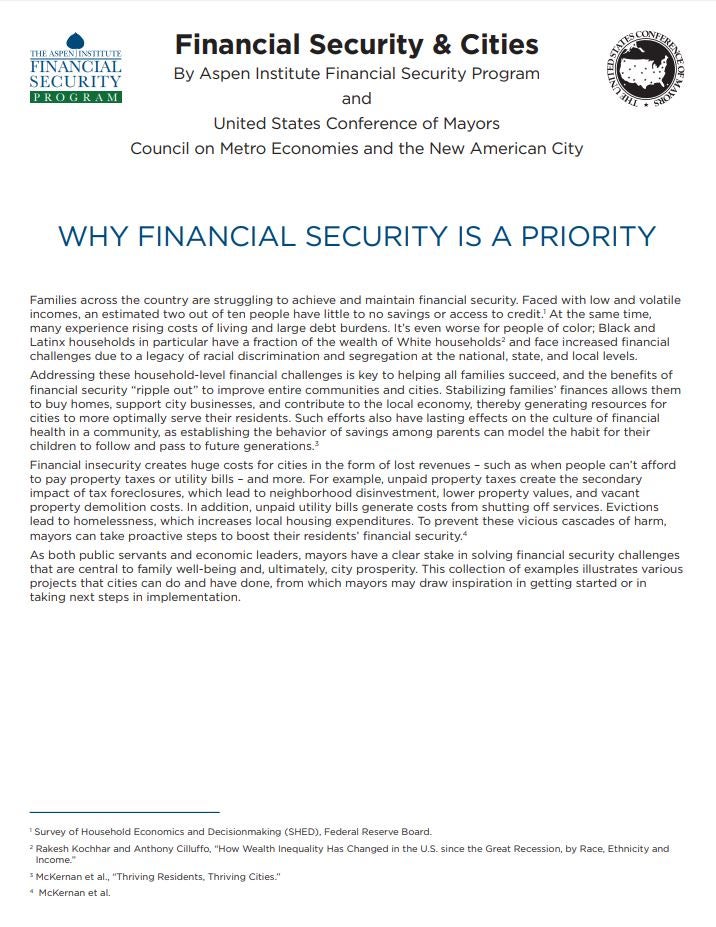WHY FINANCIAL SECURITY IS A PRIORITY
Families across the country are struggling to achieve and maintain financial security. Faced with low and volatile incomes, an estimated two out of ten people have little to no savings or access to credit. At the same time, many experience rising costs of living and large debt burdens. It’s even worse for people of color; Black and Latinx households in particular have a fraction of the wealth of White households and face increased financial challenges due to a legacy of racial discrimination and segregation at the national, state, and local levels.
Addressing these household-level financial challenges is key to helping all families succeed, and the benefits of financial security “ripple out” to improve entire communities and cities. Stabilizing families’ finances allows them to buy homes, support city businesses, and contribute to the local economy, thereby generating resources for cities to more optimally serve their residents. Such efforts also have lasting effects on the culture of financial health in a community, as establishing the behavior of savings among parents can model the habit for their children to follow and pass to future generations.
Financial insecurity creates huge costs for cities in the form of lost revenues – such as when people can’t afford to pay property taxes or utility bills – and more. For example, unpaid property taxes create the secondary impact of tax foreclosures, which lead to neighborhood disinvestment, lower property values, and vacant property demolition costs. In addition, unpaid utility bills generate costs from shutting off services. Evictions lead to homelessness, which increases local housing expenditures. To prevent these vicious cascades of harm, mayors can take proactive steps to boost their residents’ financial security.
As both public servants and economic leaders, mayors have a clear stake in solving financial security challenges that are central to family well-being and, ultimately, city prosperity. This collection of examples illustrates various projects that cities can do and have done, from which mayors may draw inspiration in getting started or in taking next steps in implementation.



